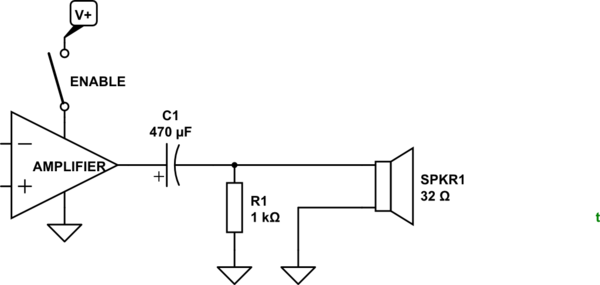When I leave my favorite headphones connected to my favorite smartphone or laptop when I'm not currently playing any audio, I periodically hear a small pop/click/crackle. I suspect it happens when some process "opens the headphone port", even if they don't immediately start playing audio.
Please note that I don't get any pop/click/crackle at other times, no matter how much I rotate or wiggle the plug or cord; so I have no reason to suspect flaky connections of any kind, such as dirty connectors, broken wires, etc.
I saw this answer to a similar question…
Loud pop noise while plugging to a headphones jack
…and I wonder if that applies to my situation.
I'm wondering if the small pop I hear might have the same root cause (charging a DC decoupling capacitor). I'm also wondering if I could implement the proposed solution — wiring a ~100Ω resistor from line to ground — in an external dongle I would place inline between my headphone cord and my audio source device.

